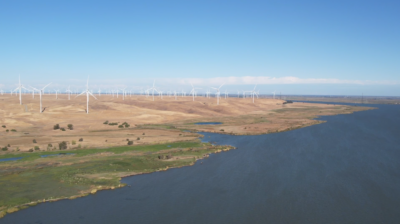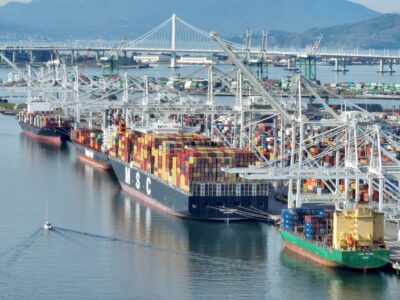CRC Spotlight: Resilient Groundwater in California’s Agricultural Heartland
This is the last in a series of profiles of the 12 winners of the California Resilience Challenge, a first-of-its-kind statewide initiative of the Bay Area Council and a diverse array of partners. The Challenge recently awarded $2 million in planning grants for a variety of innovative projects in communities across the state to address the growing impacts of climate change, including drought, floods, wildfires, and sea-level rise.
For decades, Californians have been unsustainably pumping more water from aquifers than is replenished by nature. The pressure on groundwater demand is further exacerbated by long-term climate change impacts on water supply, namely increased variability with longer drought periods and short periods of intense precipitation.
With a grant from the California Resilience Challenge, the South Fork Kings Groundwater Sustainability Agency (SFKGSA) is conducting a feasibility study on an Aquifer Storage and Recovery (ASR) project to improve water-supply resilience in the face of climate change. ASR has been used in many parts of the United States to inject water into underground aquifers when there is available surface water supply and then withdraw the groundwater later when surface water is limited.
“Water management efforts in many areas of California’s San Joaquin Valley focus on surface water capture during wet years to recharge groundwater and offset groundwater demand during drought periods. With the addition of ASR, these actions will help establish a sustainable and resilient water supply for the area,” explained Amer Hussain, Principal Engineer at Geosyntec Consultants, Inc.
The project includes two primary components. First, SFKGSA will conduct a comprehensive landowner survey to document key water use data including information on pumping wells, irrigation, and cropping methods. The survey will also include questions related to attitudes and perceptions of drought, climate change, water management authority, and transactional water markets. The second component will be to implement a pilot test of ASR in Lemoore, California. The pilot test will include extensive monitoring and modeling that will be submitted to the State for consideration and approval to proceed with a programmatic Environmental Impact Analysis under CEQA.
Throughout the project, SFKGSA will focus on presenting the results of the surveys to SFKGSA agricultural landowners, disadvantaged community residents, and the SKFGSA Board. Workshops will take place in Stratford and Lemoore, areas that are best suited for agricultural landowners. The workshops will tie survey results to introduce ASR as a solution to increase resiliency to water supply variability exacerbated by climate change impacts. Survey results related to drought and climate resilience perceptions will be aggregated separately and presented at the workshop.
The project is innovative and replicable for other locations and will help develop critical infrastructure for agricultural communities that are vulnerable to drought and its impacts on groundwater supply. Based on the work completed to date, the project has broad community support and will promote further understanding of how to address the challenges of drought resiliency.
For more information on the California Resilience Challenge, please contact Policy Associate Anna Sciaruto or Vice President Adrian Covert.
Special thanks to California Resilience Challenge funders PG&E, JPMorgan Chase & Co., Valley Water, Metropolitan Water District, Southern California Edison, Resources Legacy Fund, Alaska Airlines, SFPUC, SD Bechtel Jr. Foundation, and Pillsbury; and special thanks to Advisory Committee members AECOM, Pillsbury, Climate Resolve, Environmental Defense Fund, Ceres, and the Governor’s Office of Planning and Research.





